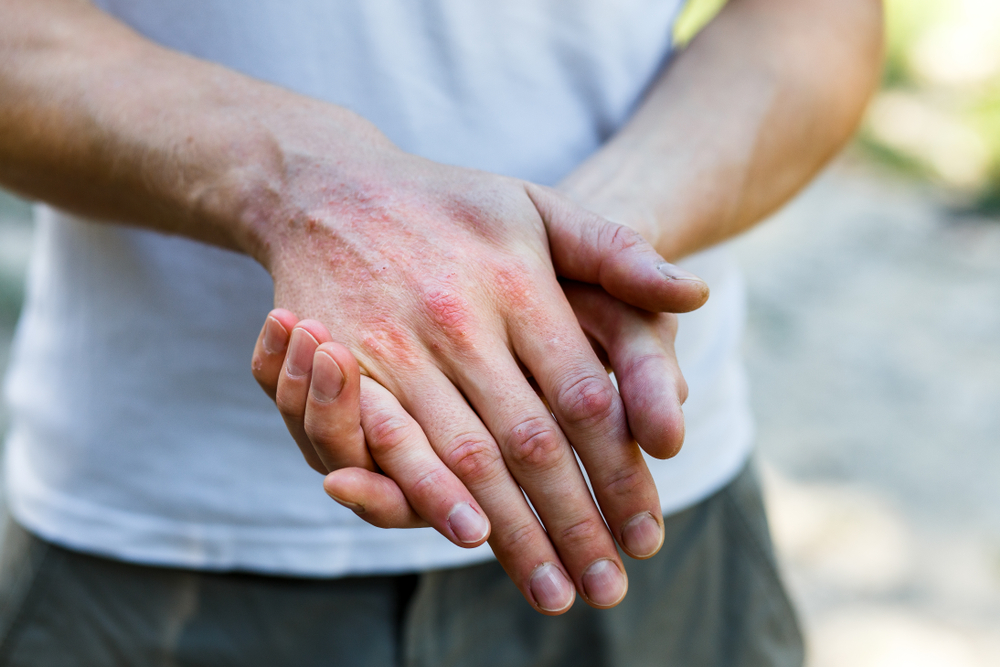The threads of mental health and physical conditions are closely interwoven in the intricate tapestry of health and well-being. A particularly compelling area of this interconnectedness lies in the relationship between our mental state and the health of our skin. While it might seem surface-level at first glance, this association delves deep, revealing how our emotional and psychological well-being can manifest on our skin. Through a lens of understanding and comprehensive care, Omnia Telehealth, based in Spanish Fort, AL, unravels the nuances of this connection, emphasizing the symbiotic relationship between the mind and skin.
1. The Bidirectional Relationship
While many know that stress can lead to breakouts or hives, the depth of the connection between the mind and skin goes much further. Skin conditions, such as psoriasis or eczema, can be exacerbated by stress and anxiety. Conversely, living with a visible skin condition can result in increased feelings of anxiety or depression, forming a cycle that’s challenging to break.
2. The Role of Neurotransmitters
Neurotransmitters, chemicals that transmit signals in the brain, are vital to our mood and stress levels. Notably, they also impact skin health. For instance, serotonin, often termed the ‘happiness chemical,’ regulates mood and affects skin cell growth. Imbalances in such neurotransmitters can, therefore, influence mental health and skin conditions.
3. Psychological Impact of Skin Conditions
Living with a persistent skin condition can affect one’s mental health. Feelings of self-consciousness, isolation, or being judged can be daily battles. Conditions like acne, often dismissed as ‘teenage issues,’ can persist into adulthood and significantly impact self-esteem and confidence, leading to deeper mental health concerns.
4. Stress: A Common Culprit
In today’s fast-paced world, stress is an all-too-familiar companion for many. While its immediate effects on mood and energy levels are often acknowledged, the impact of stress on skin health is frequently overlooked. When the body experiences stress, it releases the hormone cortisol. Dubbed the body’s primary stress hormone, cortisol prompts various physiological reactions, including inflammation. This inflammatory response, while part of the body’s natural defense mechanism, can harm skin health. Elevated cortisol levels disrupt the skin’s natural balance, causing it to produce more oil, leading to acne breakouts and other skin issues. Furthermore, the surge in cortisol hinders the skin’s regenerative capabilities, reducing its efficiency in repairing damage from external factors like UV radiation or pollutants. Over prolonged periods, persistent stress not only exacerbates pre-existing skin conditions but also paves the way for the development of new dermatological concerns.
5. The Promise of Integrated Care
The skin, often referred to as the body’s largest organ, reflects one’s internal health. Given the intricate relationship between mental well-being and dermatological health, treating them as separate entities is a dated approach. The future of healthcare lies in recognizing and addressing the holistic needs of an individual. Integrated care embodies this vision. Integrated care ensures a more comprehensive treatment plan by providing a platform where both mental health and skin conditions are addressed simultaneously. Such an approach recognizes that alleviating a skin condition might require addressing underlying psychological triggers and vice versa. With integrated care, patients benefit from a multidimensional treatment strategy, where interventions are not just focused on symptomatic relief but also on tackling root causes. This ensures that patients receive a tailored treatment plan that resonates with their unique physiological and psychological needs, promoting long-term well-being.
Prioritize Your Holistic Health: Consult Omnia Telehealth
The journey to understanding the profound connection between our mental well-being and skin is not just about acknowledging their interplay but also about seeking holistic solutions. As these two facets of health influence each other, it becomes crucial to approach them not in isolation but in tandem. Situated in Spanish Fort, AL, Omnia Telehealth is your ally in this intertwined journey, providing a platform where you can address both dermatological and mental health concerns. Reach out and experience the synergy of comprehensive care tailored just for you.
Sources
- Arck, P., Handjiski, B., Hagen, E., Pincus, M., Bruenahl, C., Bienenstock, J., & Paus, R. (2010). Is there a ‘gut-brain-skin axis’?. Experimental Dermatology, 19(5), 401-405.
- Koo, J., & Lebwohl, A. (2001). Psychodermatology: the mind and skin connection. American Family Physician, 64(11), 1873-1878.
- Snast, I., Reiter, O., Atzmony, L., Leshem, Y. A., & Hodak, E. (2018). Psychological stress and psoriasis: a systematic review and meta‐analysis. British Journal of Dermatology, 178(5), 1044-1055.

